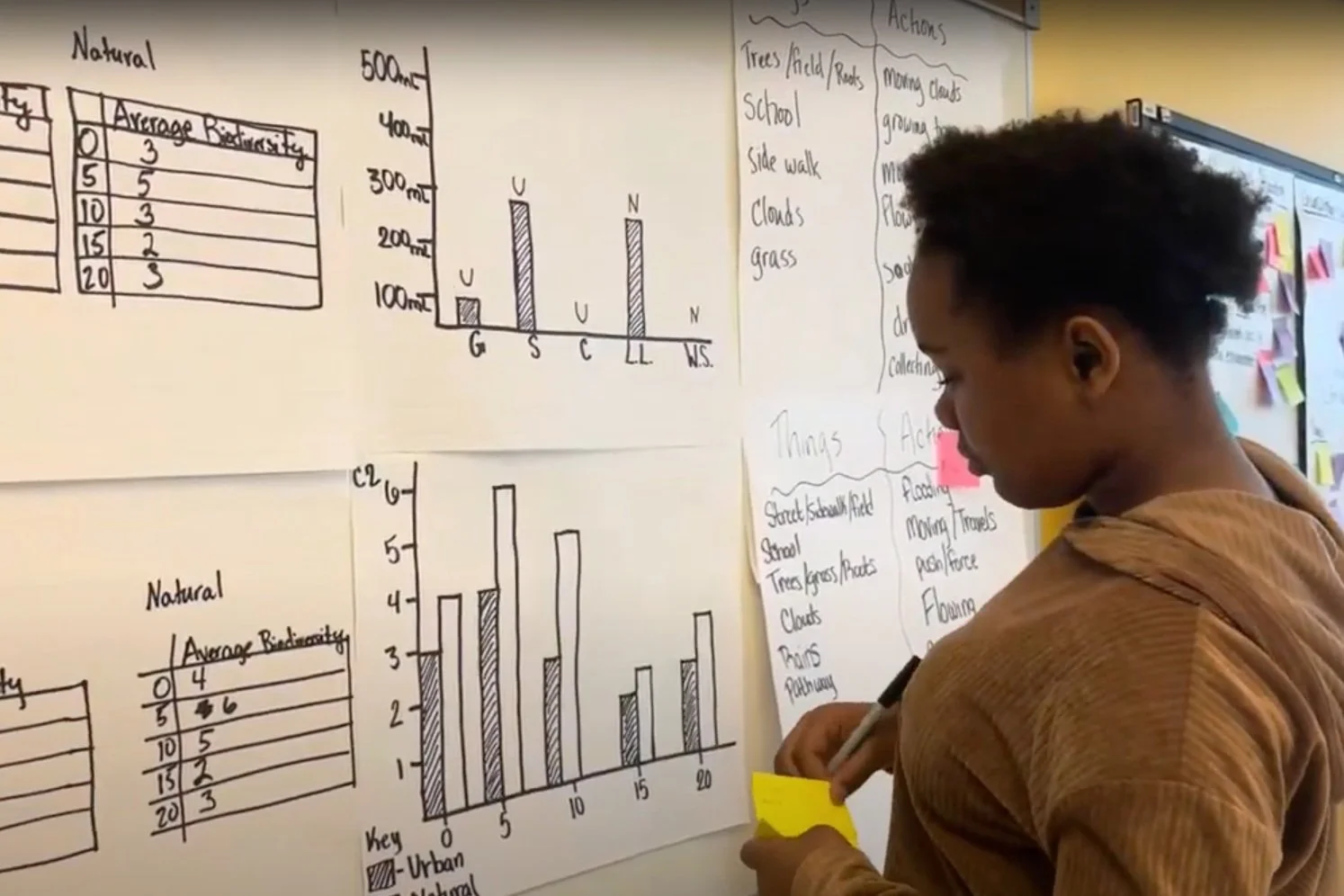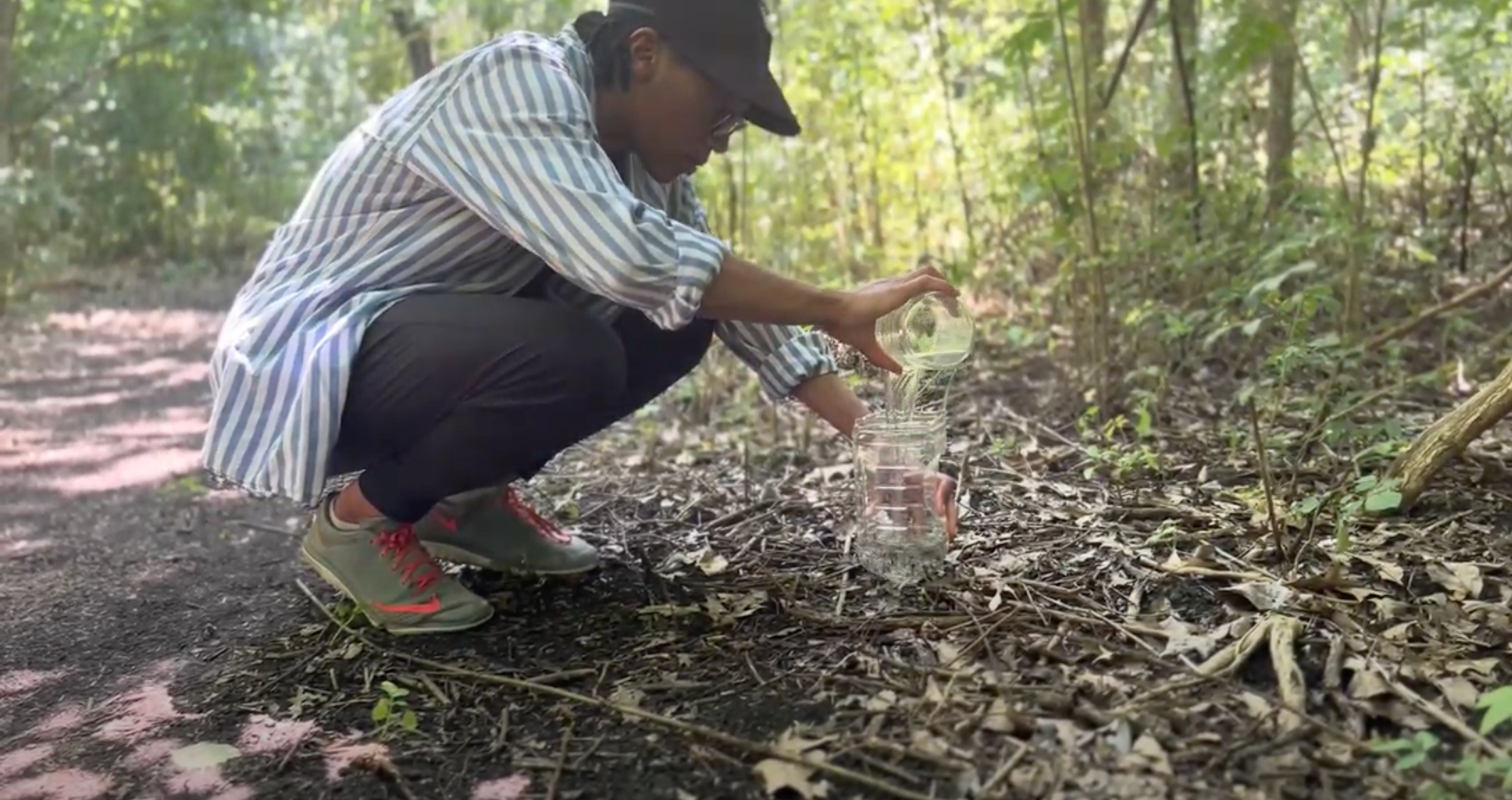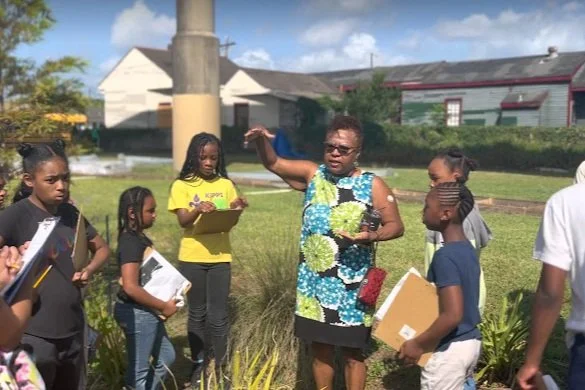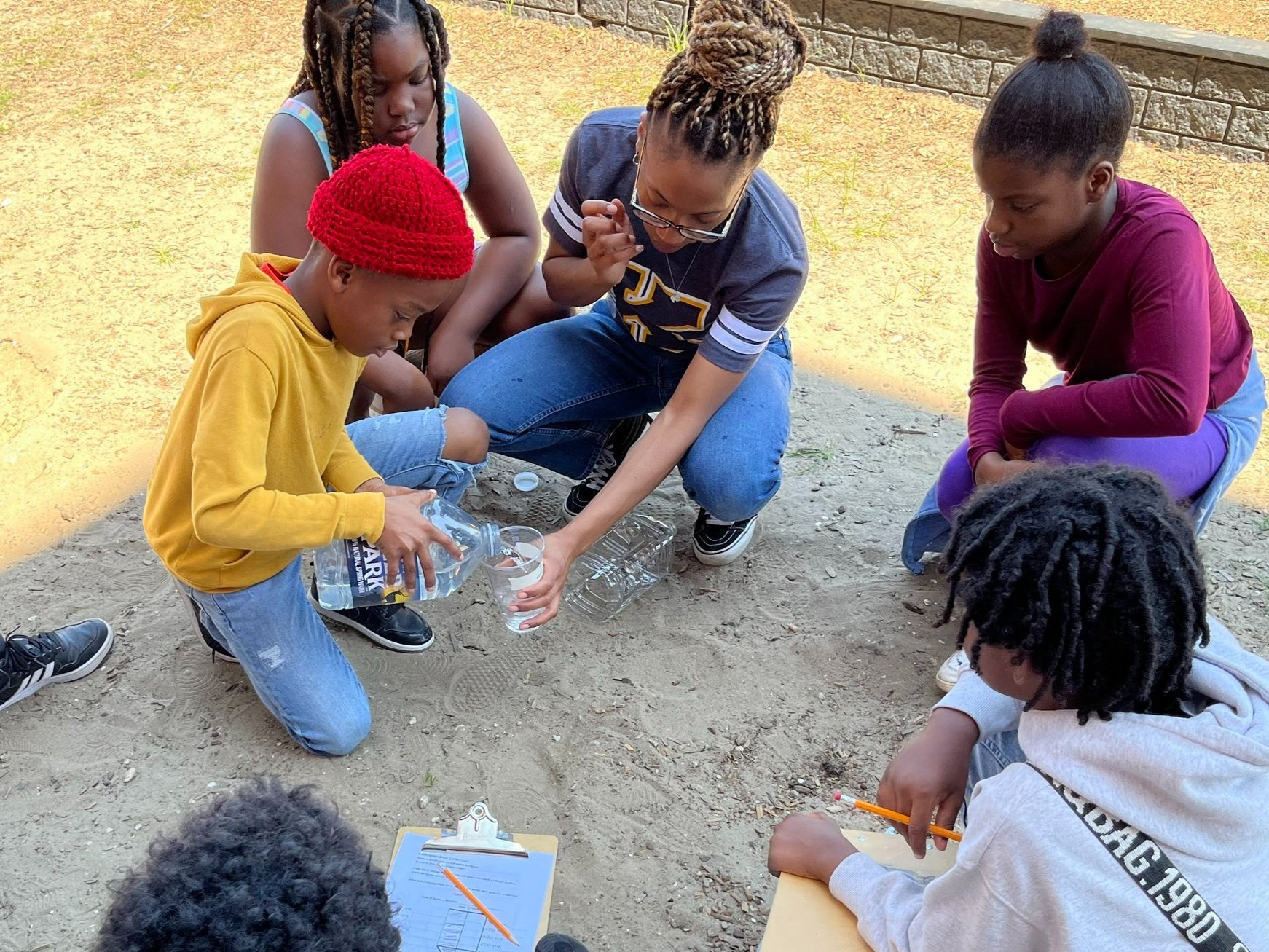Field-Based Learning
We address barriers to field-based learning so that all students have opportunities to make sense of environmental phenomena just as scientists do.
Challenges we see
All students deserve access to field-based learning experiences where they can conduct investigations and collect data to answer their questions about the world. Unfortunately, these experiences are rare in Title 1 schools due to a number of constraining factors, including time, money, lack of teacher experience or confidence, and lack of administrator support.
Our approach
We work closely with school partners to shape and implement special programs designed to address barriers to field-based learning. Those programs include features such as:
Scaffolded approach, where teachers first experience field-based protocols as students, then teach their students those same investigation protocols in a familiar environment: their own schoolyard.
Instead of jumping straight to data collection, we build in time for open exploration, so that students can make observations and experience the outdoors with curiosity and wonder.
Provide intensive teacher professional development, where teachers new to this style of teaching have wraparound support from RE educators and are learning, practicing, and reflecting on their teaching performance in a low-stakes summer school or after-school setting.
Engage field-based educators—such as those who work for science-research entities or field stations—early in the programmatic design process and give teachers opportunities to work directly with these educators to forge or strengthen relationships.
Our Field-Based Learning Projects
Bringing elementary school teachers and students into the field
Continue exploring our vision for water literacy education in the areas of teacher learning, curriculum design, and strategic partnerships.
Make it stand out.
Want to stay in the loop on water literacy?
Sign up for our newsletter to receive quarterly updates.











